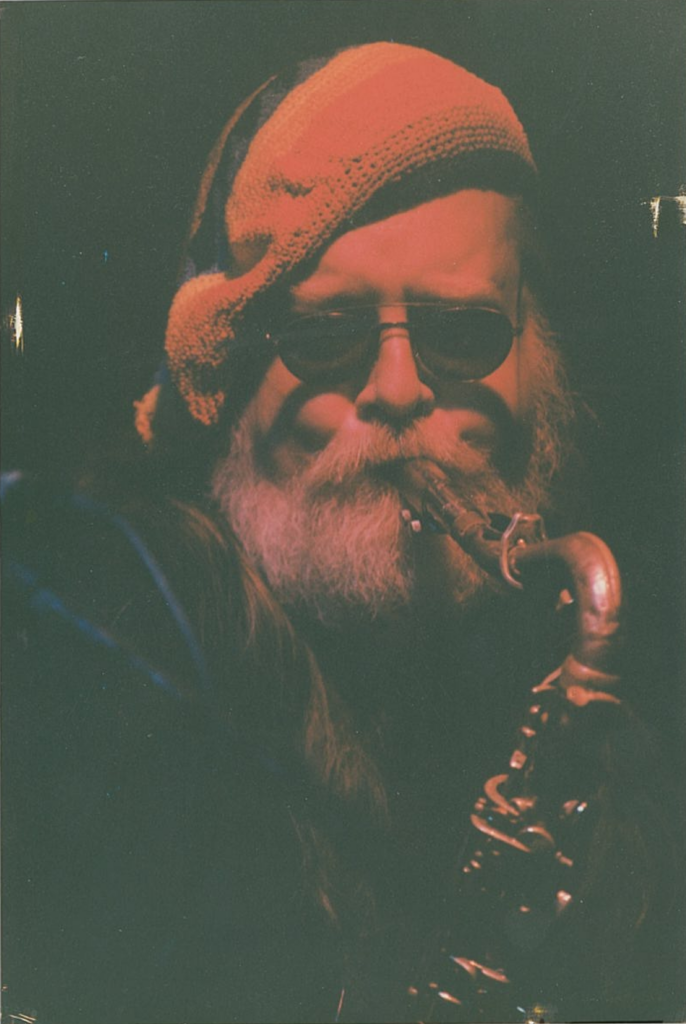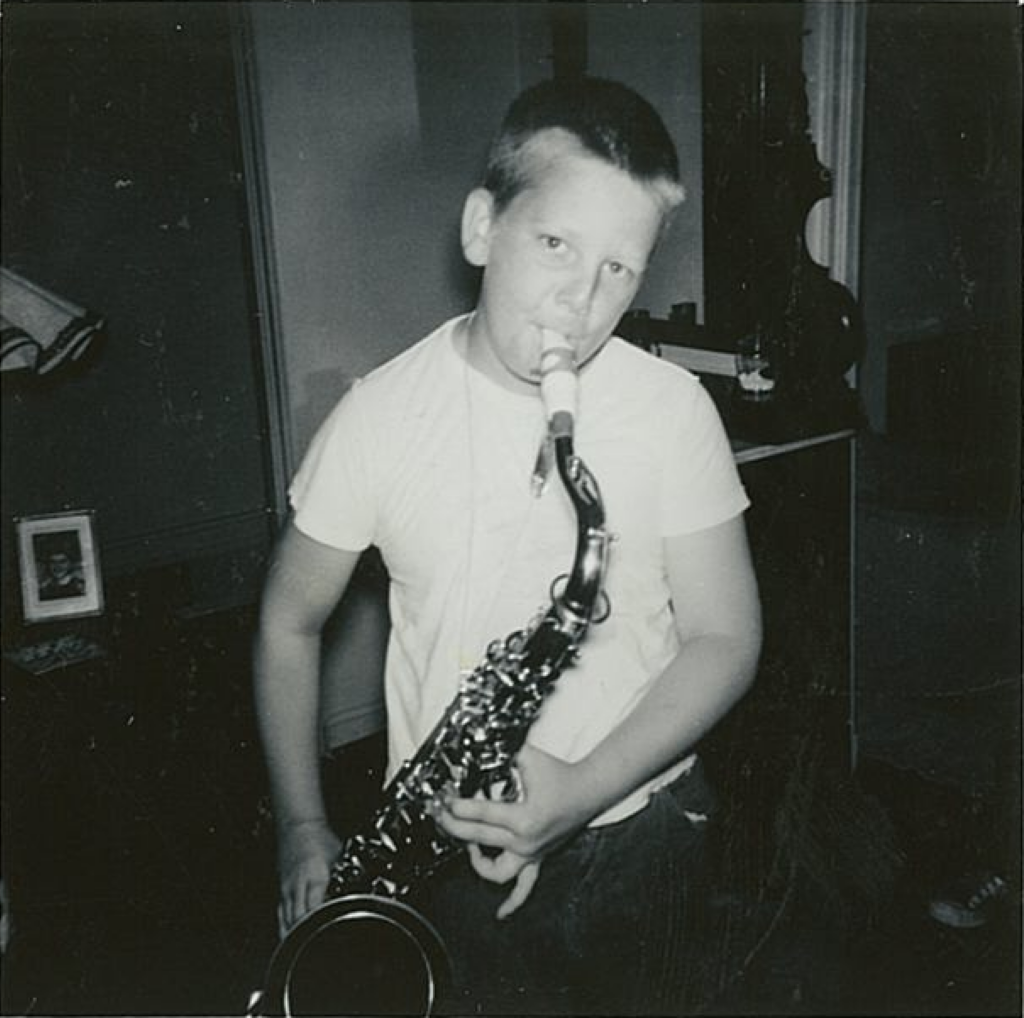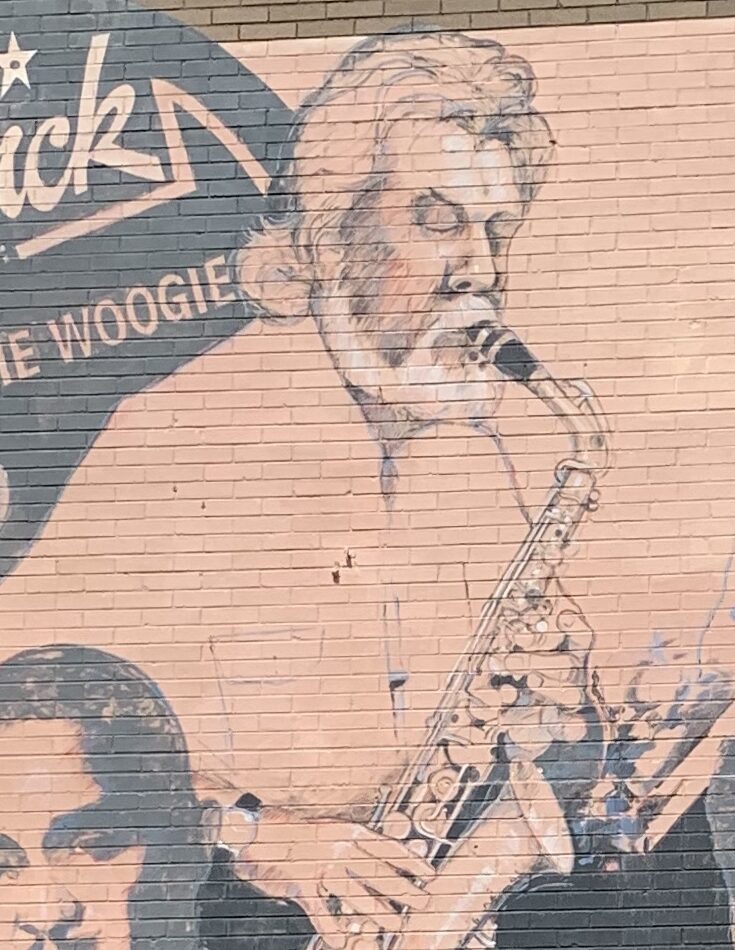2020 Honoree
(1953-2009)

Jay Carrington Scott was a world-class saxophone player whose soulful and timeless solos were featured on many gold and platinum records of the late 1970s and early 1980s. He was born on March 13, 1952 in Durham, North Carolina, and in 1958, the family moved to Eastpoint, Georgia, where his father, J. Paul Scott, worked a government job and moonlighted as an upright bass player. J. Paul’s love of music was also evident as he actively nurtured all his three children’s musical gifts. The eldest, Linda, and the youngest, Laura, were both encouraged to focus on instruments and voice. However, J. Paul particularly honed in on young Jay’s innate musical talent and ended up buying him a Music Minus One program for the saxophone. At nine years of age, Jay started playing saxophone, seemingly effortlessly as some recall, and never stopped.
The family relocated to St. Thomas, Virgin Islands for J. Paul’s government work and young Jay continued to seep in the music, the beauty, and the culture of the Caribbean. Being the only white kid in a variety of situations gave Jay a new perspective. And his music thrived by playing with many different players. He was not deterred when his Anglican private school – All Saints – did not offer a full band for students. When Carnival time came and many of the other schools’ bands were featured in the annual parade– to his family’s surprise – he ended up joining three other bands that day. One band marched by – the Catholic school – and they had red hats. And Jay was spotted with them, playing sax with a red hat on. Then the Lutheran school came marching by with blue hats. And then his family saw Jay, playing along and marching with a blue hat on, etc..

In 1968, the father again moved the family to Dothan, AL and the Scott children were the talk of the town with the black British Taxi cab they tooled around in and the mod clothes that they wore. It bears mentioning that their mother, Margery, was also a British war bride and formerly a professional dancer, adding to their air of cool cosmopolitanism.
But when young Jay tried to join the Dothan High School band, he was told “no” by the Band Director given his long hair. Unfazed, Jay found other avenues for musical expression. He connected with some of the young black musicians and they played various clubs in the Bottom, the predominantly black area of Dothan. They particularly found a home at Buier’s Lounge – where Jay became know as the blue-eyed soul brother. It was here where he mastered his sound which incorporated elements of funk, soul, rhythm and blues, and jazz. He was also known for intricate scale work which facilitated his masterful solo playing.
After graduating from high school, Jay played saxophone with Mitch Goodson of MG and the K-PERS and they played Panama City beach on a regular basis. It was there that he was spotted by Sonny Turner. Sonny had recently left The Platters and was starting a solo career as Sonny Turner and Sound Unlimited; he hired Jay on the spot to go on tour and Jay traveled around the states. The band played Las Vegas a great deal and it was there that Jay was also hired to be in the house band for famous comedians playing the Strip like Rodney Dangerfield and Rich Little.
In the mid-70s, Jay returned to Dothan to take a break from the road. His sister Laura introduced him to the most happening club in Dothan at the time – The Club – on North Foster Street. Jay went down one night and played a few songs with the house band, Satyr, who again hired him on the spot. He found his home for a couple of years with Satyr.
In 1977, Jay decided to move to Atlanta to find session work. His skillful saxophone work was used by the southern rockers, Lynard Skynard on “What’s Your Name – Little Girl?” (1977), produced by the legendary Tom Dowd.
Jay was then discovered by a young producer, Steve Buckingham, who enlisted him to play on a new disco record coming out on Polydor, featuring the 1978 single, Alicia Bridges’ “I Love the Nightlife.” Jay’s melodic and haunting solo on that song caught the attention of many musical admirers; this admiration was only magnified when Jay demonstrated his virtuosity on tour. Sister Linda, who was living in New York City at the time, remembers when Jay performed at the famous East Village club, The Bottom Line, backing up Alicia Bridges. She explained that Jay had also struggled with Bells Palsy throughout his life and had learned how to play through muscle weakness on one side of his face. But Jay with his unbeatable spirit, took that hindrance and through intentionally isolating his muscles, was able to learn to play two saxophones simultaneously. Jay featured this technique during The Bottom Line show, and according to Linda, the New York City audience leapt to their feet, cheering. Afterwards, back stage, the well-known saxophonist, David Sanborn, who had been in the audience that night, was there exchanging phone numbers with Jay. Sanborn was trying to encourage Jay to move to NYC, but Jay apparently told his sister, half-jokingly, that a move to New York was not in the cards as the “price of Big Macs was too high in NYC.”
When the Grammys were held in 1978, “I Love the Nightlife” was nominated for best song and Alicia Bridges performed the song at the ceremony. Sanborn was apparently enlisted to play sax at this Grammy performance given his iconic status. According to reports from people who attended the 1978 Grammys’ rehearsal, Sanborn complained that he could not play the famous sax solo as well as Jay.
After Jay’s success with Alicia Bridges, he soon garnered the attention of other music producers and recorded the featured sax solo on various gold and platinum records at this time: Melissa Manchester’s “Whenever I Call You Friend” (1979); Dione Warwick’s “Easy Love” (1980); Paul Davis’ “He Sang Our Love Songs” (1980); and Kansas.
Jay also recorded with other Dothan artists like John Rainey Adkins, David Adkins (Sister Laura’s husband), and Rodney Justo who had gained commercial success in the late 70s with their band Beaverteeth. Jay was featured on their two RCA Victor albums: 1) the title track, “I’m Callin,” on Beaverteeth (1977) and “Stop that River in Your Eye” on Dam It (1978).
In the 1980s, Jay decided to move to Panama City Beach, permanently and continued to play for more than two decades on the Emerald Coast. Using backing tracks, he played solo gigs and led other band configurations, as well as played a great deal with the guitar player, Lowell Howell. He also began teaching in earnest and volunteered to teach children for free at the Martin Luther King Center. He ended up marrying a local guitar-player/singer, Pat in 1993, while he continued his musical endeavors.
Besides his saxophone playing, Jay was a gifted soul singer and also a multi-instrumentalist – playing flute, congas, and piano with amazing skill. Yet, he also was plagued by various health problems, having been through a serious motorcycle accident which required a hip replacement. Apparently when Jay went in front of a judge to request Medicaid benefits for this hip replacement, the judge declared that being a musician was not a true profession and denied him benefits.
Despite the hardships that Jay weathered throughout his life, Jay was known for his overall positive attitude, his profound kindness, as well as his keen sense of humor and deep infectious laugh. He apparently loved to quote his father’s words of wisdom for musicians that served Jay well during a life of touring and countless gigs: “Show up, play, get paid. And never argue with a drunk.” Jay also coined the phrase “The dancing poodle always wins” which was featured on a website he built to promote his music.

In addition, although he never pursued higher education, his family members and friends also remember him as the smartest person they had ever known. According to various reports, Jay seemed to absorb knowledge as if by osmosis and his facile references to history and culture were particularly evident when he won round after round of Trivial Pursuit to anyone who would challenge him.
Jay Carrington Scott’s sax playing and musical legacy was ultimately heard by millions around the world in the era-defining songs that featured him. On September 3, 2009, the world lost a huge talent when Jay died suddenly of a heart attack at the age of 57. This date was particularly meaningful for his loved ones as well, given that it coincided with the beginning lyrics to one of Jay’s all-time favorite songs, the Temptations’ “Papa Was a Rolling Stone”. They lyric states: “It was a third of September, that day I’ll always remember.” To this day, Jay is remembered in one of the Dothan, Alabama’s downtown music murals, honoring musical greats that came from the Wiregrass region.


